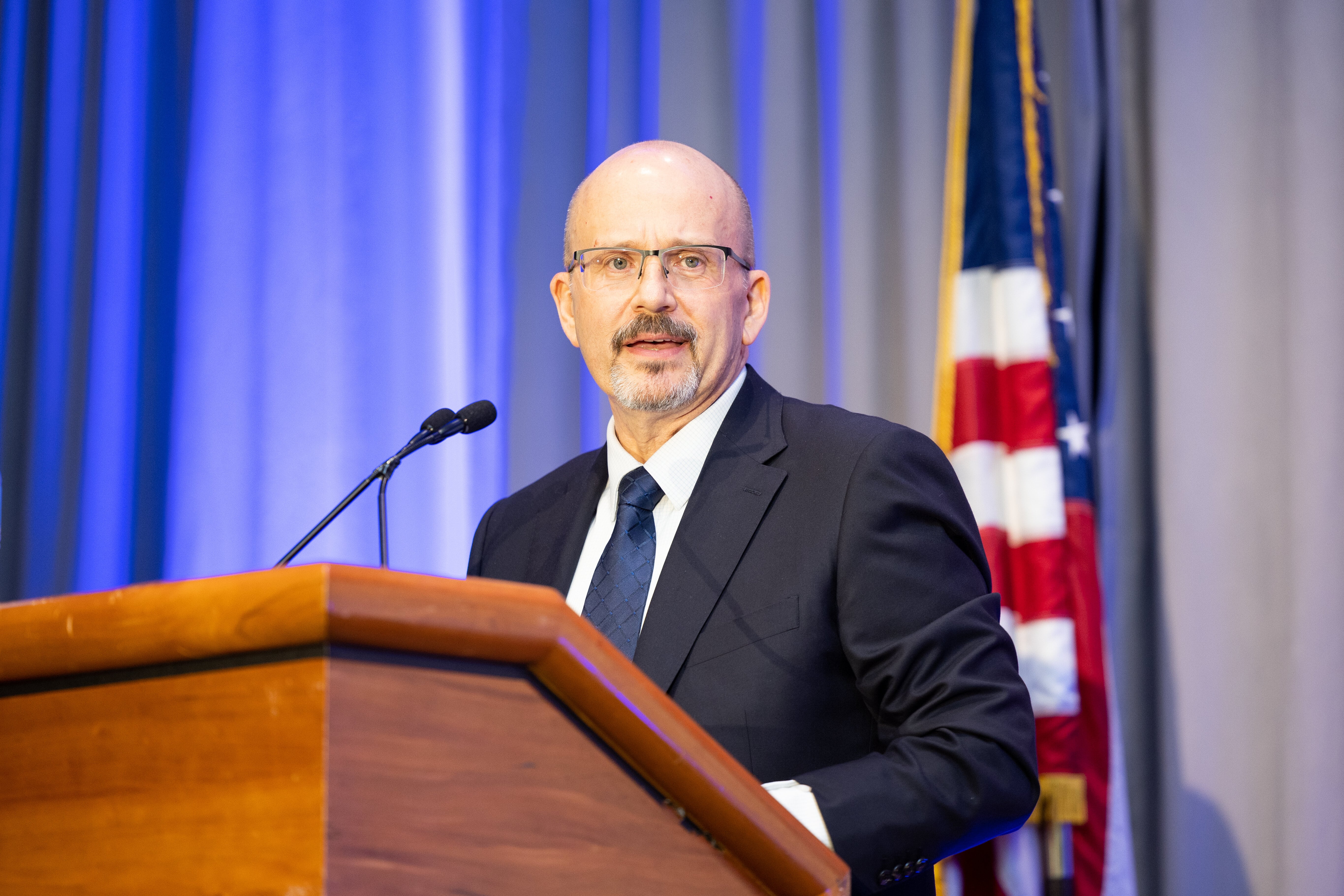Opening Keynote
Dr. Karl S. Mathias, Chief Information Officer, HHS
Dr. Karl S. Mathias is a distinguished figure in the health industry, serving as the Chief Information Officer (CIO) for the U.S. Department of Health and Human Services (HHS). Dr. Mathias shoulders the responsibility of spearheading information technology (IT) systems and cybersecurity activities for a massive workforce of over 83,000 professionals at HHS. As the CIO, he plays a pivotal role in formulating and executing IT policies, managing high-priority projects, and strategically investing in IT initiatives. Dr. Mathias' leadership also extends to overseeing the Department's $7 billion IT portfolio, which plays a fundamental role in supporting HHS's expansive mission of enhancing the health and well-being of all Americans.
While addressing the audience, Dr. Karl S. Mathias provided insights on the transformative potential of information technology in advancing healthcare. Drawing from his expertise in managing a vast IT portfolio for HHS, he shed light on the optimization of IT systems to improve healthcare efficiency, patient care, and overall health outcomes, as well as the challenges HHS faces, and how industry cooperation has been key in providing new solutions. Looking into the future, he discussed the integration of cutting-edge technologies like artificial intelligence, data analytics, and telemedicine, emphasizing their potential to revolutionize healthcare delivery and accessibility. Dr. Mathias underscored the significance of cybersecurity in safeguarding sensitive health data and protecting vital healthcare infrastructure, as technology's expansion also raises new challenges in protecting patient information, with increasing ransomware attacks and state-sponsored targeting of healthcare systems.
Despite its crucial role in healthcare advancement, the U.S. Department of Health and Human Services faces several challenges under Dr. Mathias' leadership. Managing a vast and diverse IT workforce, ensuring seamless interoperability among various healthcare systems, and adhering to stringent data privacy regulations are among the prominent hurdles. Additionally, the ever-evolving landscape of cyber threats demands constant vigilance to safeguard critical health data and prevent potential breaches. As the health industry embraces new technologies and innovations, ensuring equitable access to healthcare and addressing disparities among different populations also remain significant challenges that the HHS endeavors to address under Dr. Mathias' guidance. Finally, the large cost of legacy IT systems remains an issue, which HHS looks to industry to address.
